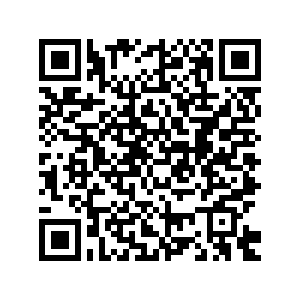by Julia Pierrepont III
LOS ANGELES, Oct. 24 (Xinhua) -- A lawsuit was filed Tuesday here against the University of California, Los Angeles (UCLA), alleging the suppression of freedom of speech during a Pro-Palestinian protest on the famous university campus in late April.
The lawsuit, Blair v. Regents of the University of California, centers on the university's decision to close down the encampment set by protesters.
The plaintiffs argued that the university's actions were an unconstitutional suppression of speech, particularly as regards getting the police involved in shutting it down.
In late April 2024, a significant protest took place at UCLA, sparking controversy and legal action. Four individuals, namely two professors and two graduate students, participated in the protest which focused on UCLA's financial involvement with Israel amid the conflict in Gaza.
The protesters established a Palestine Solidarity Encampment on campus, mirroring other pro-Palestinian demonstrations across U.S. colleges, to raise awareness of the war and demand divestment from Israel.
The Israeli-Palestinian conflict was reignited on Oct. 7, 2023, after Hamas launched a large-scale attack on Israel. In retaliation, Israeli Prime Minister Benjamin Netanyahu vowed to eliminate Hamas, leading to intensified violence in Gaza.
This war led to thousands of deaths, with children making up a significant portion of the casualties. As the violence unfolded, pro-Palestinian protests spread in the United States, with university campuses serving as platforms for calls to end the war and criticize institutional ties to Israel.
The protest at UCLA in April lasted for eight days. Students and faculty camped out on campus, with the encampment as a focal point for the demonstration. It was peaceful for several days but later faced opposition from counter-protesters organized by Jewish American groups, escalating tensions.
On May 2, the Los Angeles Police Department, supported by other agencies, intervened to dismantle the encampment, citing incidences of violence. They arrested several individuals, including the four plaintiffs in the lawsuit against UCLA, which claimed the university violated their constitutional rights to free speech and peaceful assembly.
By the end of the last academic year, U.S. law enforcement arrested more than 2,000 students across hundreds of college campuses.
The American Civil Liberties Union (ACLU) supported the plaintiffs in Tuesday's lawsuit, asserting that UCLA's decision to shut down the protest was driven by the content of the speech, which targeted UCLA's investment in Israel.
According to the ACLU, universities are supposed to be spaces that foster critical thought and expression, and shutting down protests due to discomfort over the message undermines this role.
Graeme Blair, associate professor at UCLA and one of the plaintiffs, expressed his disappointment with UCLA's actions, saying that while the university cited concerns about safety, the violence at the encampment was instigated by outsiders, not the protesters.
He argued that UCLA's response was a way to appease those uncomfortable with the protest's message rather than protect public safety. Blair emphasized the importance of protecting free speech and the need to challenge what he saw as an exception for Palestine-related protests.
The lawsuit also highlighted the historical precedent at UCLA, where the university had allowed encampments in the past for various causes, including anti-apartheid protests in the 1980s and the Occupy Wall Street movement in 2011.
The plaintiffs argued that the university's selective enforcement of policies against the pro-Palestinian protest amounted to discrimination. Therefore, they are seeking a legal declaration that the university's actions were unlawful and asked for the expungement of arrest and disciplinary records related to the protest.
UCLA, in response, reiterated its commitment to upholding First Amendment rights, but maintained that the encampment had become a source of violence and disruption, stressing the need to balance free speech with the safety and functioning of the campus.
The protest at UCLA was part of a broader wave of student activism across the country, sparked by the war in Gaza and calls for divestment from Israel. Similar protests occurred at Columbia University and the University of Minnesota, among other campuses.
These protests often led to tensions between pro-Palestinian activists and those concerned about antisemitism. Jewish students, in particular, voiced fears about their safety during the protests, further complicating the debate over free speech and campus safety.
In the aftermath of the protests, UCLA faced ongoing criticism from both sides. Some argued that the university had not done enough to protect Jewish students and prevent antisemitic rhetoric, while others accused the administration of suppressing pro-Palestinian voices.
UCLA's Task Force to Combat Antisemitism and Anti-Israeli Bias released a report in 2024, documenting increased incidents of antisemitism on campus since the conflict began, and saying that Jewish students and faculty reported feeling unsafe and marginalized, with some considering leaving the university.
A separate task force focused on Anti-Palestinian, Anti-Muslim, and Anti-Arab racism noted increased harassment and violence against these groups, arguing that the university had failed to create a safe environment for all students. Both task forces presented their findings to UCLA's administration, but their recommendations were not binding.
This fall, schools across the United States are taking a tougher approach to pro-Palestine protests, with many of them having prohibited any sort of encampments on school grounds and restricted what time of days protests can occur, and some are requiring students to get approval from the administration before holding a demonstration.
The pro-Palestinian protests that roiled university life last academic year have been much quieter in the first few weeks of the fall semester. So far, the only notable arrests were in New York, where police arrested two Columbia University affiliates during a beginning-of-year protest.
Meanwhile, Harvard banned pro-Palestinian students from the library after a silent study-in, and the University of Maryland attempted to ban a vigil for Gaza until it was overruled by a federal judge. ■
